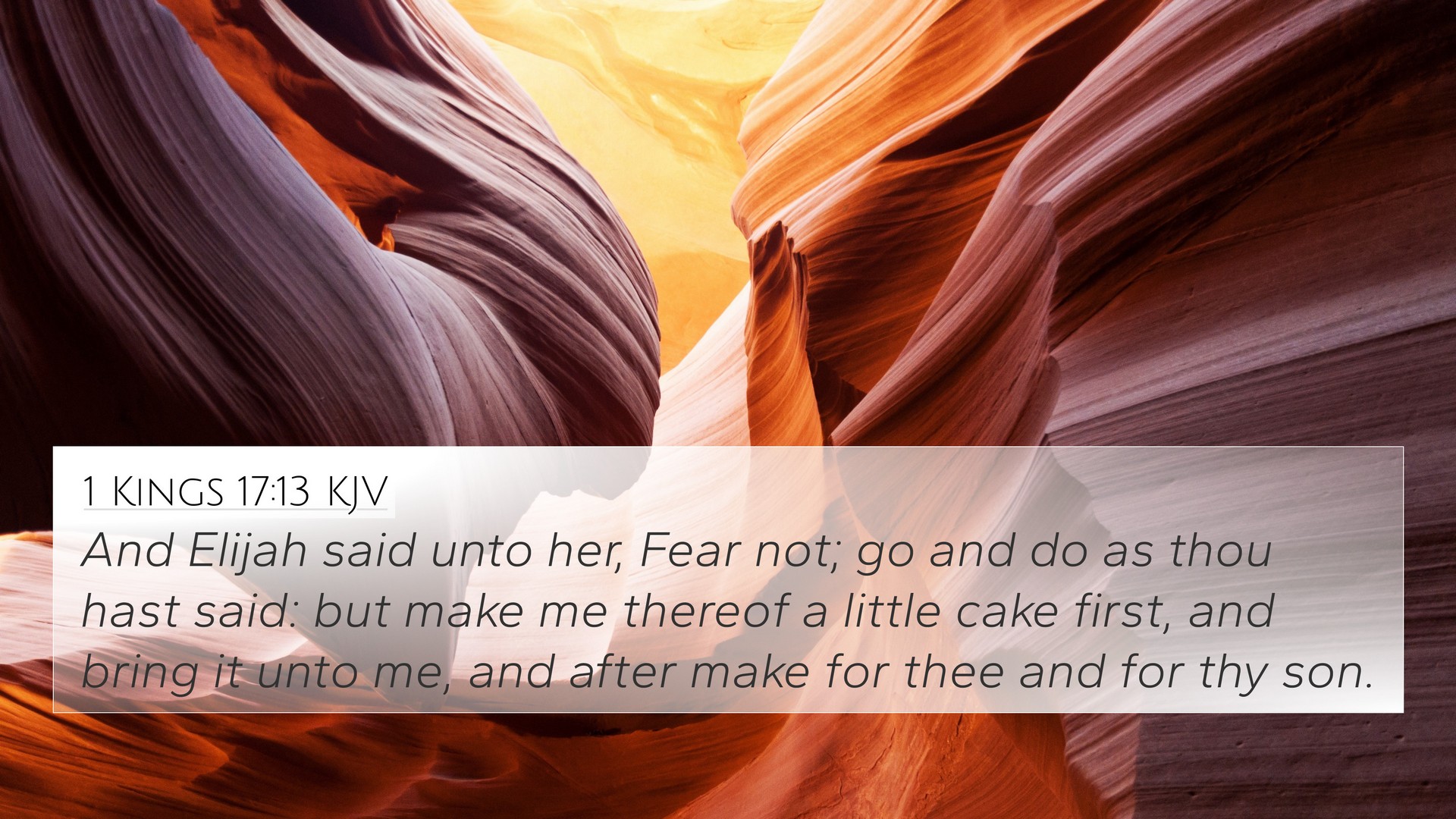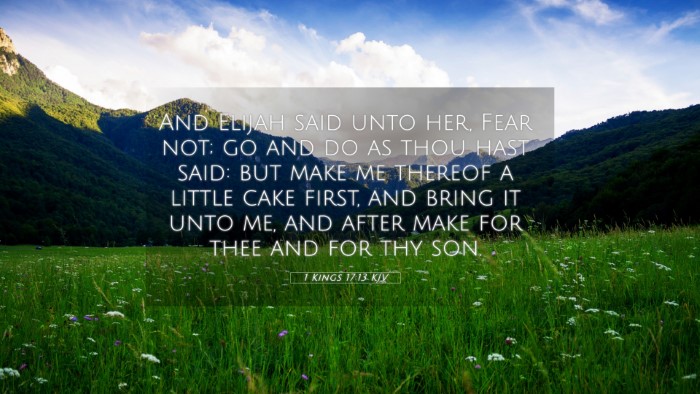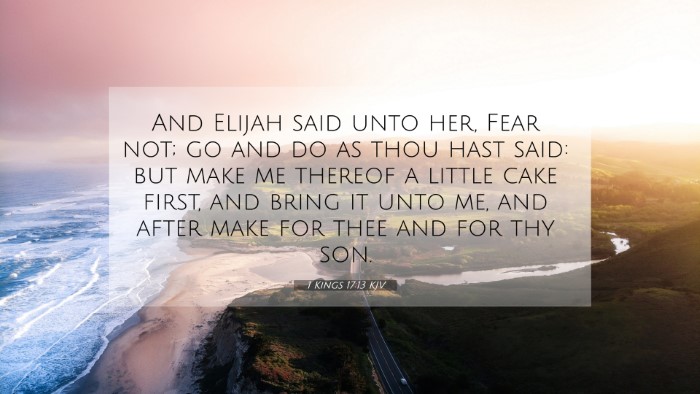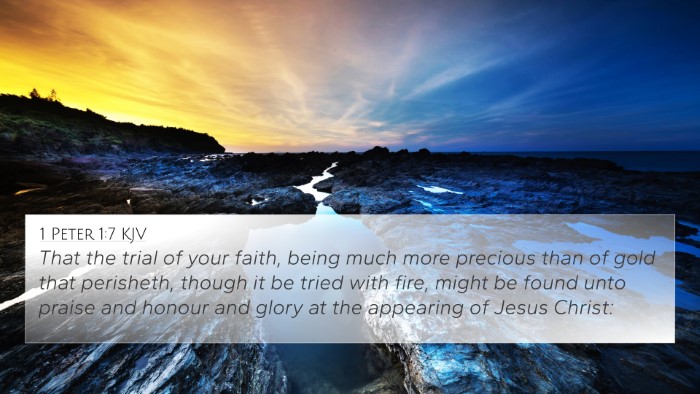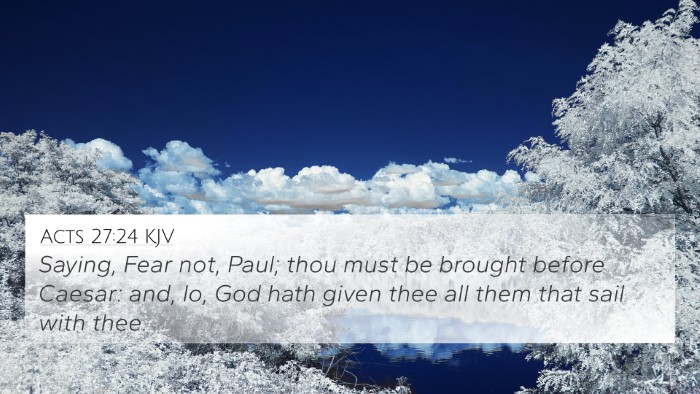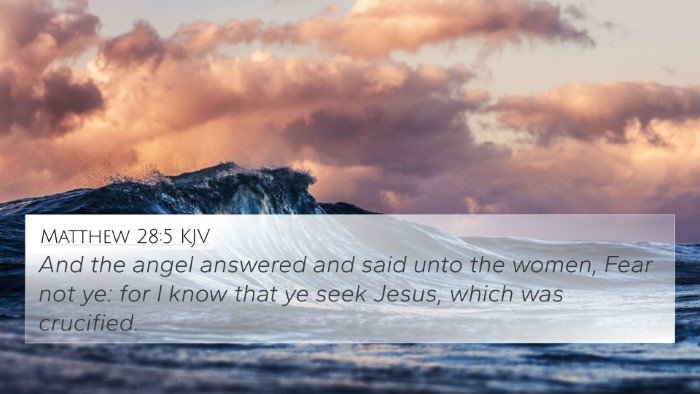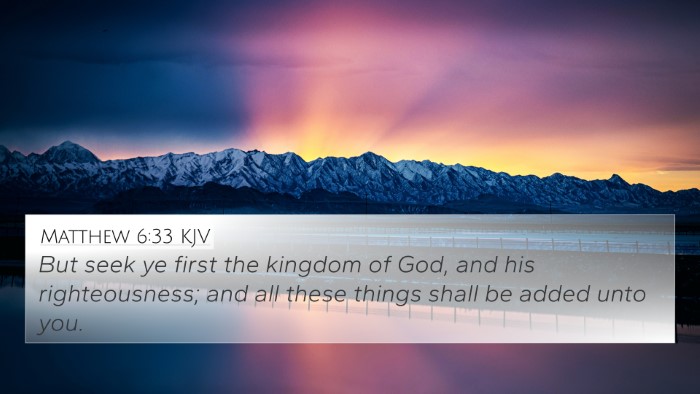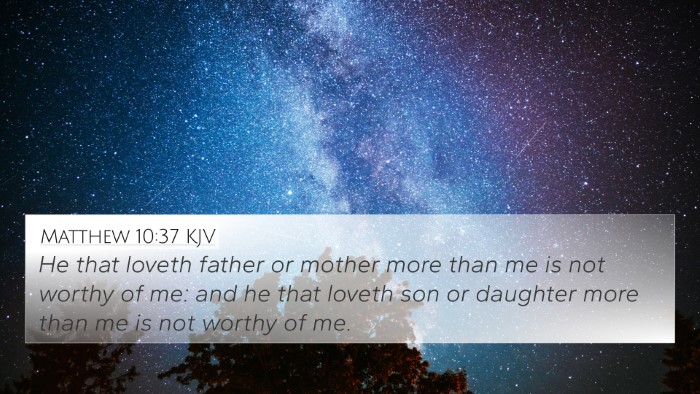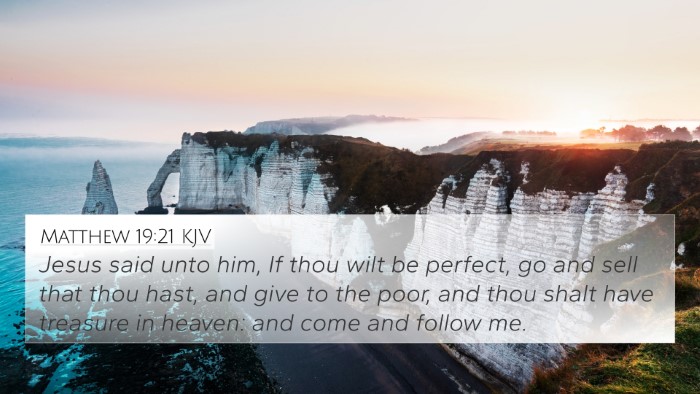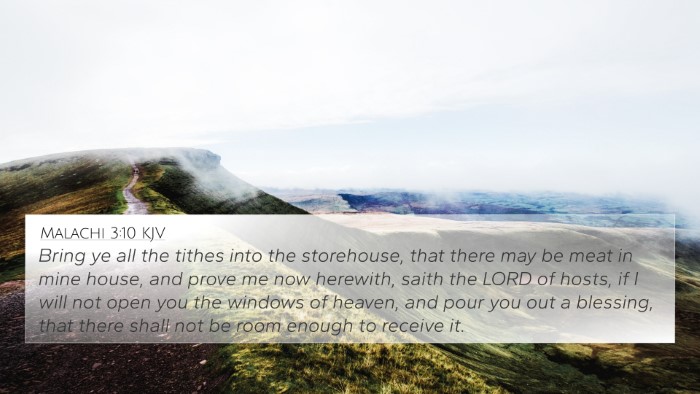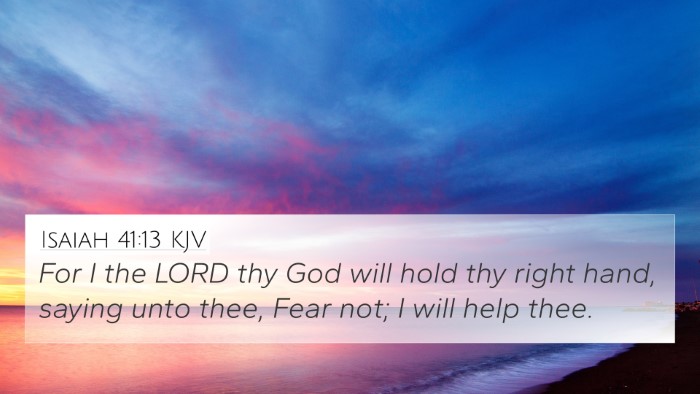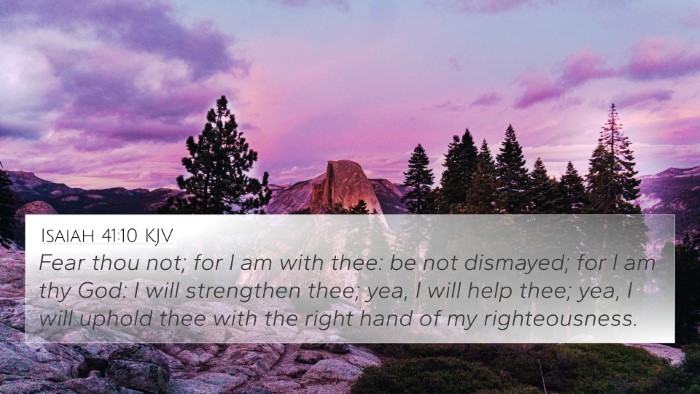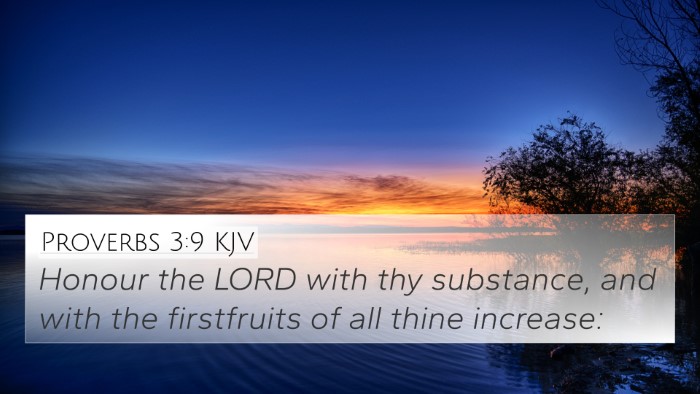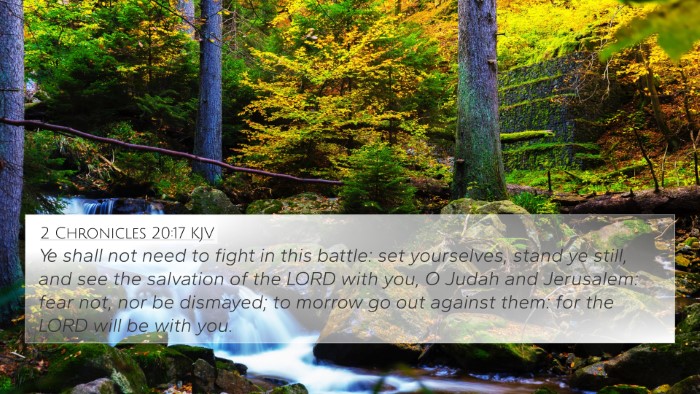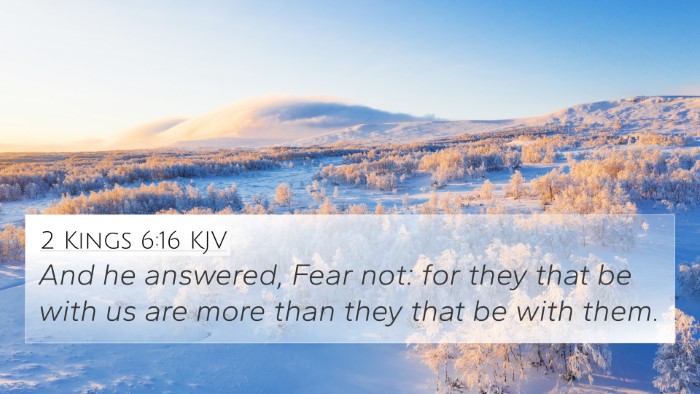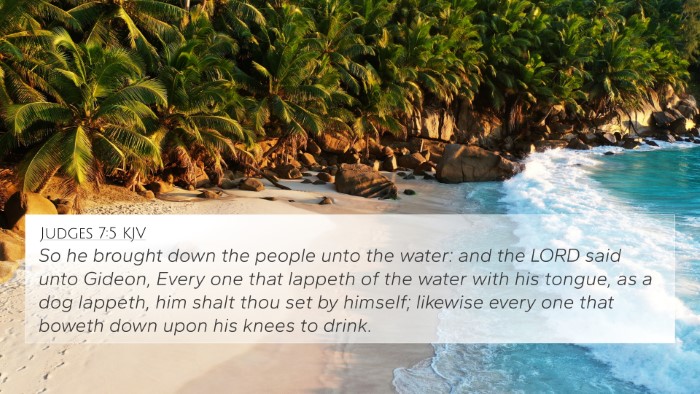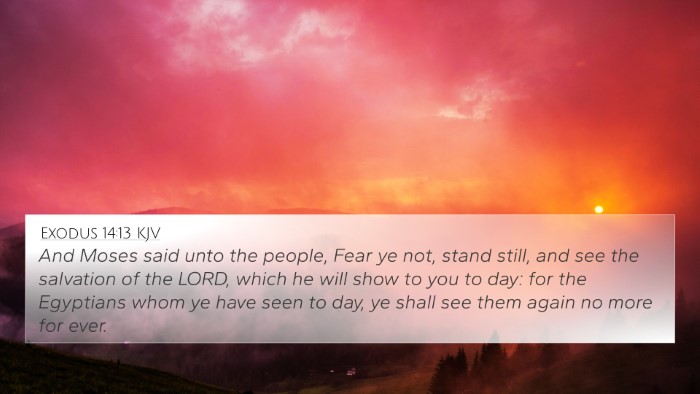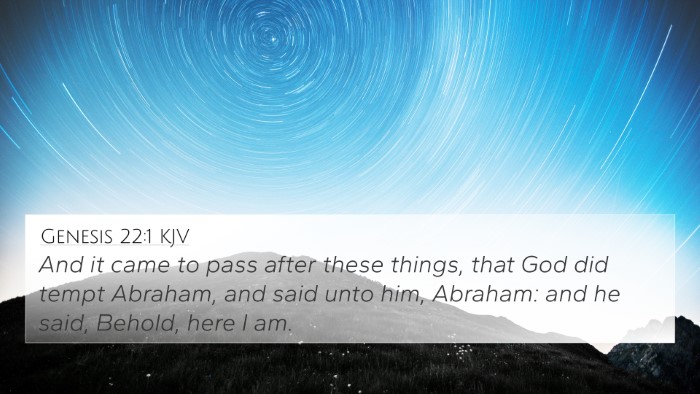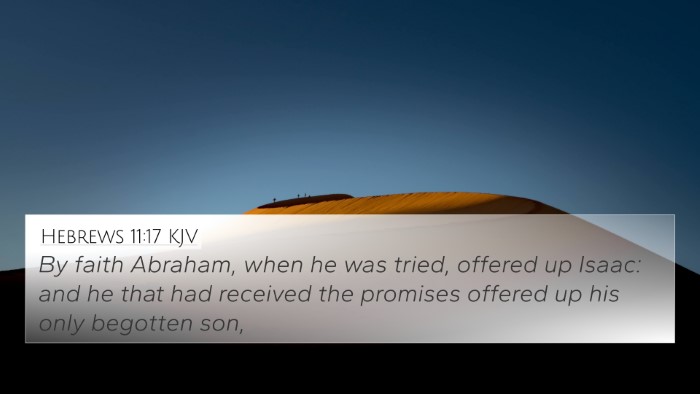1 Kings 17:13 states, "And Elijah said unto her, Fear not; go and do as thou hast said: but make me thereof a little cake first, and bring it unto me, and after make for thee and for thy son."
This verse encapsulates themes of faith, divine provision, and God's sovereignty. The context surrounds the prophet Elijah during a time of drought in Israel, where he encounters a widow in Zarephath who is preparing to eat her last meal with her son. Elijah's request may initially seem selfish, but it reflects a deeper spiritual truth about prioritizing God's work and trusting in His provision.
Summary and Insights from Commentaries
Matthew Henry’s Commentary
Henry emphasizes that Elijah's instruction to the widow was not merely about meeting his needs; it was a test of her faith. The widow's situation was dire, and her initial hesitance demonstrates her desperation. Yet, Elijah's reassurance, "Fear not," underscores the importance of faith in God's provision. By prioritizing Elijah, she aligns herself with God's purpose, leading to subsequent blessings.
Albert Barnes’ Notes on the Bible
Barnes points out that the request for the first cake from the widow symbolizes placing God first in our lives, which is a central tenet of biblical teaching. He notes that this encounter demonstrates the principle of offering to God before attending to our immediate needs, recognizing that true sustenance comes from obedience to God's commands. The miraculous provision that follows showcases God's ability to sustain life through faith.
Adam Clarke’s Commentary
Clarke adds that Elijah’s statement reflects the broader biblical principle that God honors those who honor Him. He explains that the widow’s act of faith leads to an abundance that defies human logic, illustrating a fundamental truth about God’s kingdom: that through sacrificial giving, believers are often blessed beyond what they can comprehend. Clarke also notes the importance of viewing this event within the larger narrative of God’s dealings with His people during times of scarcity.
Thematic Connections
This verse connects strongly with various themes found throughout the Bible. Here are some key connections:
- Provision During Need: This is demonstrated in Exodus 16:4, where God provides manna to the Israelites in the wilderness.
- Faith and Obedience: Parallel to Matthew 6:33, which teaches to seek first the kingdom of God.
- Miraculous Supply: Similar to John 6:11, where Jesus multiplies five loaves and two fish to feed thousands.
- Elijah's Ministry: Explored in 1 Kings 18:21, calling Israel back to worship God.
- Eternal Perspective: Reminiscent of 2 Corinthians 4:18, focusing on unseen eternal truths rather than temporal troubles.
- God’s Faithfulness: Related to Philippians 4:19, which promises that God will supply every need.
- God’s Care for the Vulnerable: Encouraged in Psalm 146:9, emphasizing God’s protection of the widow and orphan.
Cross-Referencing Biblical Texts
1 Kings 17:13 serves as a robust example of cross-referencing themes and narratives within the Scriptures. By examining similar instances of divine provision and the testing of faith, one can see a consistent biblical message:
- Exodus 3:12: God reassures Moses that He will be with him.
- Matthew 14:15-21: Jesus performs a miracle of feeding the 5000.
- Proverbs 11:25: A generous person will prosper, reinforcing the biblical principle of giving.
- 1 Peter 5:7: Casting all anxieties on God reflects the widow's transition from fear to obedience.
- Hebrews 11:1: Faith as the assurance of things hoped for, epitomized through the widow's experience.
- Lamentations 3:22-23: God's mercies are new every morning, aligning with the widow's unfolding story.
- Luke 6:38: The principle of giving being reciprocated in blessings emphasizes the widow's critical act of faith.
Conclusion
In interpreting 1 Kings 17:13, one discerns a multi-faceted approach to understanding divine providence, the practice of faith, and the transformational nature of obedience to God’s instructions. Commentaries from respected theologians offer a rich insight into the event, echoing a timeless message found throughout Scripture about the importance of trust and God's unfailing provision for those who follow Him.
